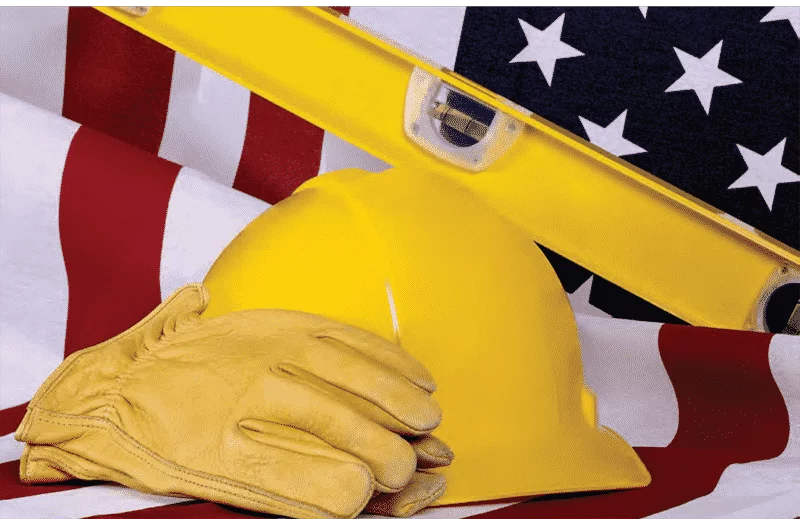Construction is a fantastic career choice for veterans—it utilizes the skills instilled during military service, such as adaptability, leadership and quality assurance of projects. Construction careers include many aspects veterans tend to enjoy, including hands-on work, being a team player and completing a project.
But just like any job, you want to ensure that whatever career you pursue can provide for your family.
If you’re looking into joining the construction industry, consider these five avenues:
Elevator and Escalator Repair
While this may not be the first job you think of when you hear “construction,” it is one of the most important. Elevators and escalators are valuable for any building and ensure that those with specific disabilities have an equal opportunity to enjoy public spaces. Elevator and escalator installers and repairers assemble, install, maintain and replace elevators, escalators, chairlifts, moving walkways and similar equipment. They usually specialize in installation, maintenance or repair work and have extensive knowledge of electronics, hydraulics and electricity.
Elevator and escalator installers and repairers can become Certified Elevator Technicians (CET) or Certified Accessibility and Private Residence Lift Technicians (CAT) through the National Association of Elevator Contractors. They can also be certified as Qualified Elevator Inspectors (QEI) through the National Association of Elevator Safety Authorities International. In most states, you must be certified to work in this field.
- Average Salary: $97,860
- Estimated Field Growth: 3% (Slightly below average)
Boilermakers
Boilers, tanks and vats are used in many buildings, factories and ships. They usually heat water or other fluids to produce electric power and heat during the colder months. As a boilermaker, you are responsible for assembling, installing, maintaining and repairing boilers, closed vats and other large vessels or containers that hold these liquids and gases.
Boilermakers typically need a high school diploma, as most of their training comes from apprenticeship programs where they receive hands-on experience on job sites. Depending on your state, you may also need to earn proper licensing. Most employers prefer that boilermakers hold National Center for Construction Education and Research (NCCER) certification.
- Average Salary: $64,290
- Estimated Field Growth: -5% (Decline)
Construction and Building Inspectors
As a construction or building inspector, your job is to ensure that construction meets local and national building codes and ordinances, zoning regulations and contract specifications. These inspections can occur for buildings, dams, bridges, highways, streets, sewer and water systems. They also inspect electrical; heating, ventilation, air-conditioning and refrigeration (HVACR); and plumbing systems. Inspectors specialize in different areas to ensure a proper and thorough assessment of each structure aspect.
Training requirements vary by state, locality and type of inspector. Construction and building inspectors must have their high school diploma and onsite training with an experienced inspector. Through their training, construction and building inspectors learn building codes and standards as a prerequisite to obtaining their license and through continuing education. Earning your bachelor’s degree in architecture, engineering or a similar field may be preferable for certain companies and job positions. Most states and localities also require inspectors to have a license or certification adhering to their specific location’s guidelines.
- Average Salary: $61,620
- Estimated Field Growth: -4% (Decline)
Electricians
Almost every building has electrical power to power the lights, equipment and appliances that make people’s lives easier and more comfortable. To make sure these systems are present and working, electricians are responsible for installing, maintaining and repairing electrical power, communications, lighting and control systems in different structures. They often have to possess knowledge of new and aging electrical systems and know how to operate tools around electrical wires safely.
Most electricians learn their trade in a 4- or 5-year apprenticeship program. For each year of the program, apprentices typically receive 2,000 hours of paid on-the-job training and some technical instruction. Workers who gained electrical experience in the military or the construction industry may qualify for a shortened apprenticeship based on their experience and testing. Electricians must also have their high school diploma and certification. Licensing from the National Electrical Contractors Association is sufficient for the qualifications required by most states and programs.
- Average Salary: $60,040
- Estimated Field Growth: 7% (Average)
Plumbing
Another critically important role in the construction of every kind of building, plumbers handle everything related to water and gas. Plumbers install and repair water, gas and other piping systems in homes, businesses and factories. They install plumbing fixtures, such as bathtubs and toilets, and appliances, such as dishwashers and water heaters. They clean drains, remove obstructions and repair or replace broken pipes and fixtures. Plumbers also help maintain septic systems—large, underground holding tanks that collect waste from houses that are not connected to a sewer system.
Most plumbers, pipefitters and steamfitters learn their trade through a 4- or 5-year apprenticeship. Apprentices typically receive 2,000 hours of paid on-the-job training and some technical instruction each year. Most states and some localities also require plumbers to be licensed. Although licensing requirements vary, states and localities often require workers to have 2 to 5 years of experience and pass an exam demonstrating their knowledge of the trade before allowing plumbers to work independently.
- Average Salary: $59,880
- Estimated Field Growth: 2% (Slower than average)
Source: U.S. Bureau of Labor Statistics


